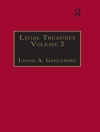“The art of war is of vital importance to the State, ” writes General Sun Tzu at the outset of one of the most important military treatises ever written. Furthermore, he writes, war can lead to safety or ruin and must not be engaged in lightly—it is a matter of life and death. What follows is a terse, sober analysis of the successful planning and conduct of war, which is as pertinent in the twenty-first century as it was in China 2, 500 years ago.
Within these pages, Sun Tzu explores:
• The five fundamental facets of war and the seven elements that determine outcomes
• War economy and limiting the cost of conflict
• The importance of unity, discipline, alliances, and cities
• Strategic defense and the recognition of offensive opportunities
• Flexibility in responding to changing circumstances
• Fighting wars without having to do battle
• The five sources of intelligence and how to use them
As notable for its insights into motivating people and knowing one’s opponent as for its emphasis on preparedness, flexibility, and understanding the environment, The Art of War has become an important resource for modern business people, trial lawyers, and sports teams—as well as for military leaders.












